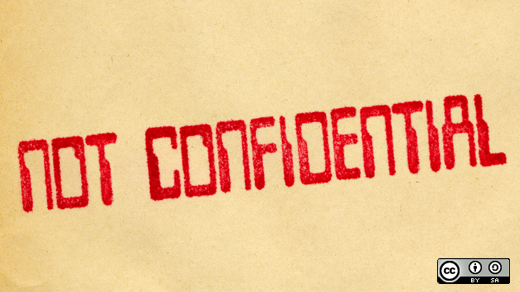"A popular government, without popular information, or the means of acquiring it, is but a prologue to a farce or a tragedy; or, perhaps both.”
Those were the words of James Madison in 1822, repeated in a letter dated February 25 to Librarian of Congress James Billington. The letter was signed by 38 organizations including the American Library Association, Center for Democracy and Technology, Federation of American Scientists, Sunlight Foundation, and so on.
These groups are calling for the librarian of all librarians, overseeing the entirety of the Library of Congress, to appoint a new director of the Congressional Research Service “who will work with Congress to provide online free public access to the unclassified, non-confidential, taxpayer-funded reports produced by CRS.”
The Congressional Research Service is an interesting beast. You can think of it like Congress’ pocket think-tank. Members ask questions and CRS responds with short summaries of issues, longer exploratory reports, and full-fledged analytical pieces. In addition to the reports, CRS provides help through on-line resources, confidential legal and policy analysis to individual members, seminars and briefings, even telephone consultations.
It’s no small operation, typically receiving $100 million in appropriations of taxpayer funds. Staff members number at nearly 700 [Annual Report pdf]. They produce voluminous work. Its website touts the important role the CRS plays:
“...the need for insightful and comprehensive analysis has become vital. Congress relies on CRS to ... help legislators form sound policies and reach decisions on a host of difficult issues. These decisions will guide and shape the nation today and for generations to come.”
However, this “vital” analysis (and we’re just talking about the non-confidential work that already comes in nicely packaged reports) isn’t for public consumption.
CRS has a whole private-access on-line universe and the only way to uncover some of the thousands of publications developed (or updated) each year is to hope that a legislator unveils the report, or that you specifically know it was written and ask the right person.
In the past few years, numerous on-line repositories have been developed to accessibly house CRS reports that end up seeing the light of day: FAS and OpenCRS being two of the more prominent. And one, at least to my knowledge, pay site, claiming the most comprehensive collection.
These are important documents that potentially influence legislative thinking, are researched and written for the people we vote for, and are paid with taxpayer money. A lot of them end up in the public sphere anyway. Why in 2011, with government transparency efforts left and right can Congress not get its act together on a seeming no-brainer?
And that is really where the issue is: Congress. I understand and applaud the desire of the organizations that signed onto the letter to hit every point of influence. Having a transparency-friendly director at CRS would go a long way, but Congress is where the current impetus for secrecy lies.
Every year CRS receives its appropriation money attached with a specific paragraph that first appeared in 1954:
“...no part of such amount may be used to pay any salary or expense in connection with any publication, or preparation of material ...”
Though clearly hard to infer based on the text alone, according to a staff memo by the current director, through precedent and general CRS-Congress relations this wording has come to be interpreted broadly (and I'm paraphrasing a lot of obfuscatory text here) as, we don't disclose anything. Congress has become very comfortable with that.
To some extent, it’s easy to say CRS is merely following the law. Still, what’s the rationale?
I’ll be the first to stand up and say knowing that the public may view certain aspects of the legal and policy analysis process can create a chilling effect on research and writing that goes into such work. Work that's often meant to evaluate all the options, even if unfeasible or politically at issue. On the Executive agency side, for example, there’s a specific carve out from the Freedom of Information Act for such work under Exemption 5.
The rationales put forth (as cited by the Justice Department) for this exemption include: “(1) to encourage open, frank discussions on matters of policy between subordinates and superiors; (2) to protect against premature disclosure of proposed policies before they are finally adopted; and (3) to protect against public confusion that might result from disclosure of reasons and rationales that were not in fact ultimately the grounds for an agency's action.”
These are substantive issues and ones that myself as both a policy analysis wonk and an open source geek, often have a hard time remedying.
Of course, we’re talking about the Congressional side of things. This notion of the exemption for “frank discussion on matters of policy” in a way plays out via the “Speech or Debate” clause of the Constitution. As long as the CRS-Congress relationship stays one-to-one, without CRS going public with its work, then the idea is they’re afforded more protection.
While I see that perspective, there are also two other closely related “extensions” of Congress: the Government Accountability Office and the Congressional Budget Office. Both of which, although not as potentially cozy with Congress, still perform similar work. Both organizations vastly outperform CRS in terms of access to information.
If they can figure out a model that works, and still function as stand-up analysts with a delineation for what to keep private and what to release and how to make it fairly accessible to the public, then surely we can do it a third time with pushing the Congressional Research Service into a more transparent direction.
For a bit of irony, if you want to read the latest CRS report assessing transparency in the Executive branch, download it here.







Comments are closed.